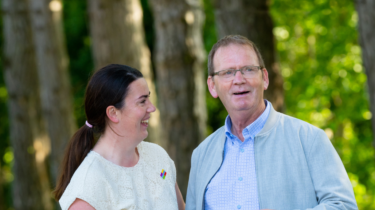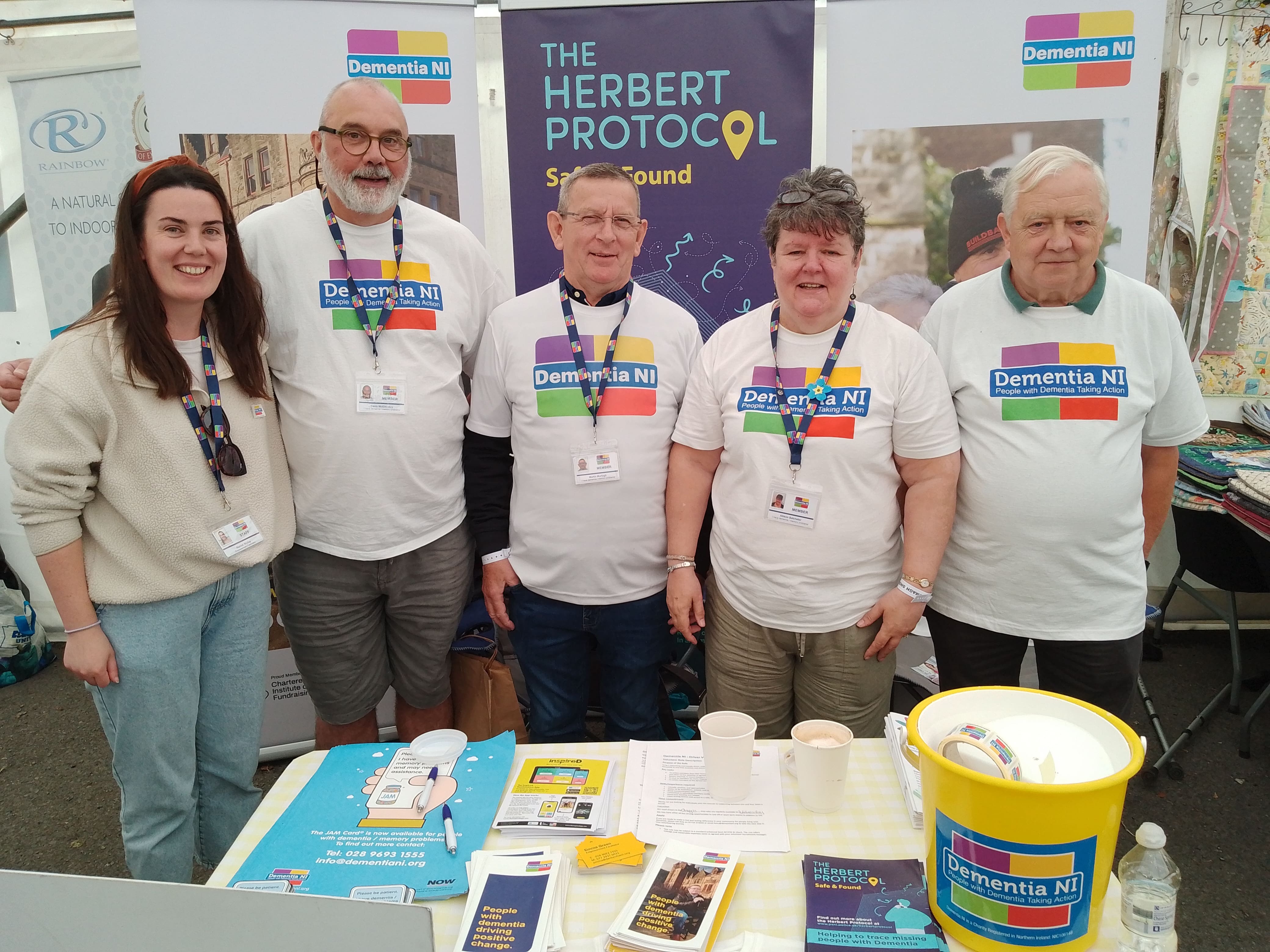A Day In The Life Of A Dementia NI Empowerment Facilitator

I’m Rachel, an Empowerment Facilitator for Dementia NI. That means it’s my job to empower local people with a dementia diagnosis to live well and stay actively involved in their communities.
Empowering our members to use their voices
I facilitate two Empowerment Groups – one in Newry and one in Armagh. Everyone in the Groups has been diagnosed with dementia and is in the early to middle stages. The Groups are great fun and I always come away from them smiling! Our members are all determined to live well and I’m proud to help them to do that.
We always start the Empowerment Groups with a conversation. This allows Dementia NI members, all of whom are living with a diagnosis of dementia, to offer one another peer support. Our members talk about what they’ve done that week and share strategies that make life easier. For example, recently one member had issues with changing their medication, causing them to have side effects. I was able to support that member in raising this within the Group to get advice from other members.
The second part of the Groups involves having an organisation along to consult with our members about making their services more accessible for people with dementia. Recently, the NI ombudsman came along to a Group to discuss what they do and how to access their services. Another time, Betty’s Ice Cream shared their new products and asked our members for advice on flavours and how user-friendly the tubs were. It’s great that companies are now consulting people with dementia and I enjoy helping to bring about those changes.
Getting to know newly referred members
In this job, there is no typical day. In the morning, I could be chatting to new referrals over the phone and arranging a face-to-face visit at their home or somewhere they are comfortable to chat openly. We'll share information about what we do at Dementia NI then complete a personal profile to help us get to know the individual better and understand how we can empower and support them.
We also offer a member peer support service In the Same Boat. If a new referral is hesitant to join the Groups we can arrange a visit with an experienced member. It means the new referral is able to talk to someone going through the same journey and learn more about the Groups from someone who has also received a diagnosis.
Working in the community to raise awareness of dementia
As a Facilitator, a lot of the work I do is community based and this is where my passion lies. Our work within schools inspires me the most. Our members are at the forefront of all we do and they help the Empowerment Facilitators host awareness sessions with students in the social care classes of secondary and higher education settings. We raise awareness around the resources available to people with a diagnosis in the community and lead discussions on reducing the stigma of what you expect someone with a dementia diagnosis to be like. We encourage students, especially those working in public facing roles, to be more aware of those living in our communities with a hidden disability and suggest ways in which to communicate better with those individuals.
Some afternoons are devoted to running awareness stands. Our members participate in these by handing out leaflets and speaking to the public to try to beat the stigma around dementia. Last year, we held an awareness stand at Craigavon Hospital and met a potential new member with a rare form of dementia. Our members were able to offer that person support and advice and encourage them to get in contact with our services.

We're always out and about attending fairs and networking events and meeting with healthcare staff such as dementia navigators. Then there are days spent at home doing admin on the laptop. It is important to keep on top of this to ensure we are safeguarding our members and empowering them as best we can.
Learning more about dementia every day
I came to this role with a Psychology degree and experience as a Health And Wellbeing Facilitator in the Southern Trust. Every day is a learning day. Our members will say, "If you have met one person with dementia then you have met one person with dementia" and this is so true. You find out that what affects one person with dementia doesn’t affect another. We use our brain for everything – to get out of bed in the morning, put our slippers on, even to yawn and stretch. These activities can become more difficult as dementia progresses but everyone’s experience is unique.
Coping with challenges as they arise
It can be hard when there is progression in a member’s dementia and they can no longer attend the Groups. When that happens, we would normally signpost the member to other services so they can receive continued support. Dementia is a progressive condition so you have to accept that there will be changes over time - but it can take you by surprise.
Feeling that my work matters
I’m grateful there is so much more awareness of dementia now and how to live well with it. Today, people’s mindsets have changed. Two thirds of people with dementia are living in the community, so it's important that those with a diagnosis keep doing things for themselves to stay independent. I’m proud to be working for Dementia NI and playing a part in helping people to achieve this.
Click here to learn more about Dementia NI's Empowerment service.